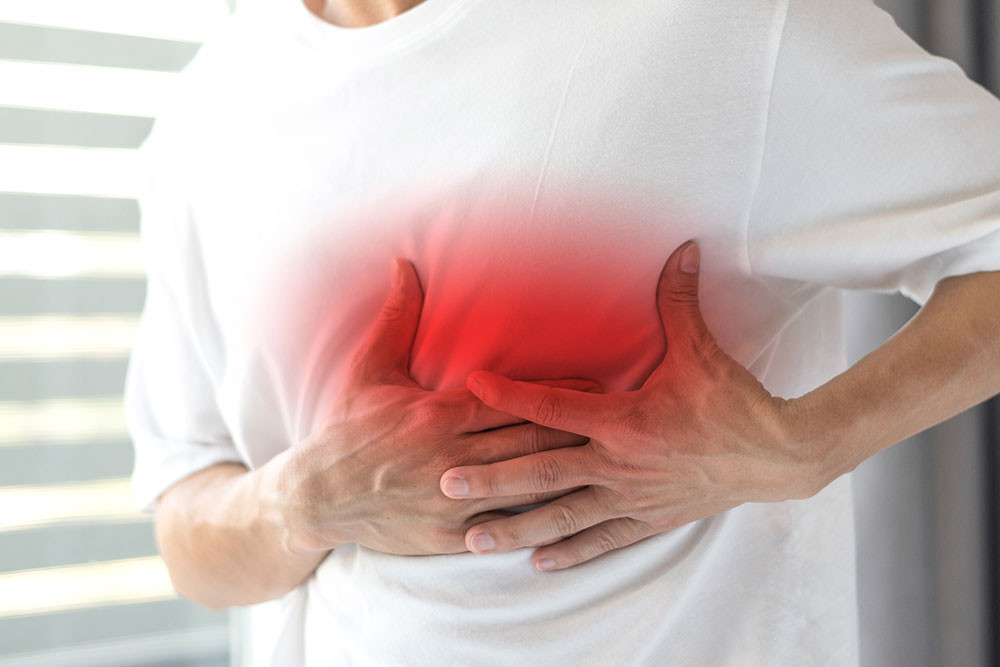Myocarditis

Myocarditis: Cold-like symptoms, potentially life-threatening!
What is myocarditis?
Myocarditis is the inflammation of the myocardium, which is the heart's muscle tissue. It can be classified as acute or chronic. Severe cases of myocarditis are often caused by a sudden viral infection. When the body becomes infected with a virus, the immune system triggers a series of immune responses, resulting in a significant inflammation of the myocardial tissue. This inflammation can affect the heart’s conduction system, leading to irregular heart rhythms or heart failure. Patients may experience severe complications or even death within hours or days without timely treatment.
The causes of myocarditis are not age-dependent, and individuals of different ages have the potential to develop myocarditis. Here are some common causes of myocarditis:
Infections
Viral infections are the most common cause of myocarditis. Viruses such as adenovirus, Coxsackievirus, influenza virus, human herpes virus 6 (HHV-6), coronavirus (COVID-19) and cytomegalovirus can invade the myocardial cells and trigger an inflammatory response. Bacterial infections (such as mycobacterium tuberculosis that can cause tuberculosis), fungal infections, and parasitic infections can also lead to myocarditis.
Immune system abnormalities
An autoimmune disease that affects the immune system can mistakenly cause the immune system to attack the myocardial cells, resulting in inflammation. Diseases such as rheumatoid arthritis, systemic lupus erythematosus, and Kawasaki disease are associated with the development of myocarditis.
Medications of chemicals
Certain medications such as antibiotics, antidepressants, or chemotherapy drugs, as well as exposure to chemicals such as heavy metals and organic solvents, can potentially cause myocarditis.
Allergic reactions
Severe allergic reactions like drug or food allergies can also trigger myocarditis.
Other causes
Myocarditis may be associated with myocardial injury, cardiac surgery, organ transplantation, radiation therapy, or heart valve diseases.
What are the symptoms of myocarditis
The signs and symptoms of myocarditis can vary from person to person, but common ones include:
- Chest pain or discomfort: This may feel like pressure or a squeezing sensation in the chest, similar to angina or a heart attack.
- Shortness of breath: Feeling breathless or having difficulty breathing, especially during physical activity or when lying down.
- Fatigue: Unusual tiredness or a general feeling of being worn out.
- Rapid or irregular heartbeat: Palpitations or a sensation of the heart racing or skipping beats.
- Swelling in the legs, ankles, or feet: Fluid retention leading to oedema.
- Flu-like symptoms: These can include fever, body aches, sore throat, headache, and muscle weakness.
- Joint pain: Inflammation in the joints, causing pain and stiffness.
- Dizziness or fainting: Feeling lightheaded, dizzy, or fainting.
It's important to note that these symptoms can also be associated with other health conditions, so a proper medical evaluation and diagnosis are necessary.
Diagnosis of myocarditis
The symptoms, severity, and outcomes of myocarditis can vary widely depending on the underlying cause and individual factors. Prompt diagnosis and appropriate treatment are important to manage the inflammation, address the underlying cause if possible, and prevent further complications. However, diagnosing myocarditis can be challenging due to nonspecific symptoms and signs. The diagnosis of myocarditis typically involves a combination of a medical history review, tests and imaging studies. Some commonly used diagnostic methods include:
- Blood tests
- Chest X-ray
- Electrocardiogram (ECG)
- Echocardiogram (ultrasound of the heart)
- Cardiac MRI
- Myocardial biopsy
Treatment of myocarditis
Treatment for myocarditis focuses on controlling inflammation, managing symptoms, supporting heart function, and addressing underlying infections or immune issues. If the cause is an infection, antiviral medications, antibiotics, or antifungal drugs may be used. Nonsteroidal anti-inflammatory drugs (NSAIDs) or corticosteroids can reduce inflammation and alleviate symptoms. Impaired cardiac function may be treated with diuretics, vasodilators, and inotropic agents. Treatment is individualized based on severity and cause. Severe cases may require hospitalization and additional interventions.